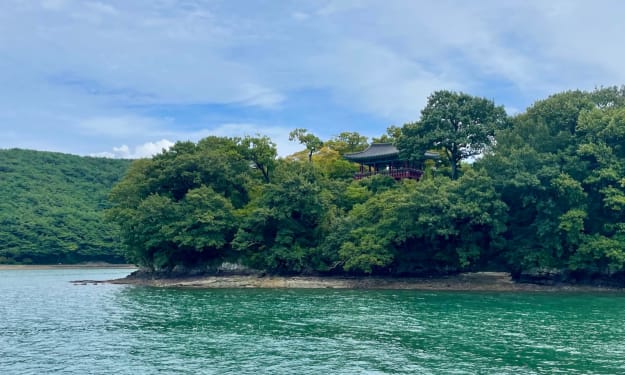Shaping Offshore Wind: Advocacy Focus
Offshore Wind

Offshore wind energy has emerged as a crucial actor in the global transition to renewable and sustainable energy sources. Offshore wind projects have gained importance as governments seek to lower their carbon footprints and combat climate change due to their enormous potential to provide renewable electricity. However, developing offshore wind projects successfully requires negotiating complex regulatory regimes and dealing with a variety of hurdles. Advocacy and policy discourse are critical in fostering the expansion and feasibility of offshore wind development in this scenario.
This document investigates the importance of advocacy and policy dialogue in offshore wind project development, focusing on how successful interaction with stakeholders and politicians can promote a favourable climate for long-term growth.
Understanding Advocacy in Offshore Wind Development
Advocacy in offshore wind project development entails working with a wide range of stakeholders, including governmental agencies, environmental organisations, local communities, and industry participants, to advocate the adoption and support of offshore wind initiatives. Advocacy initiatives that are effective aim to create awareness about the benefits of offshore wind energy, address any concerns, and build consensus among stakeholders to facilitate project implementation. Advocacy efforts frequently focus on increasing public understanding of the technology, its economic benefits, job creation potential, and role in climate change mitigation.
Influencing Policy and Regulatory Frameworks
The policy and regulatory contexts in which offshore wind projects operate have a substantial impact on their success. Policy discourse is an important component of offshore wind advocacy because it allows stakeholders to impact decision-making processes and the regulatory frameworks that govern project development. Advocates identify legislative gaps, offer supportive rules, and lobby for financial incentives to boost offshore wind energy investment. Policymakers may create a stable and predictable investment climate by supporting supportive policies that attract private sector engagement and promote technical breakthroughs.
Promoting Public Participation and Engagement
The development of offshore wind farms relies heavily on public backing. Advocacy activities aim to involve local communities, stakeholders, and non-governmental organisations (NGOs) in order to guarantee that their concerns are heard and taken into account during the planning and development phases. Effective participation and transparency foster trust between project developers and communities, thereby reducing conflicts and opposition that can stymie project progress. Engaging the public early on and incorporating them in decision-making processes can result in the creation of initiatives that are more in line with local needs and values.
Addressing Environmental and Social Concerns
Offshore wind projects must consider environmental and socioeconomic issues. Advocacy is critical in proactively addressing these challenges. Environmental impact assessments (EIAs) and collaboration with environmental organisations can help advocates identify possible dangers and propose mitigation solutions. They work with stakeholders to put measures in place to conserve maritime ecosystems, species, and sensitive habitats. Furthermore, lobbying activities might be directed towards maximising local benefits, such as job possibilities and community investments, in order to create social acceptability and support for offshore wind projects.
International Collaboration and Knowledge Sharing
Offshore wind development advocacy frequently crosses national boundaries. Stakeholders from many countries work together to share their experiences, best practises, and lessons learnt. International lobbying initiatives can promote standardisation, foster technological innovation, and establish a global ecosystem that supports offshore wind energy. Sharing knowledge and experiences also helps to generate a more thorough understanding of the difficulties and opportunities associated with offshore wind, accelerating the industry's global growth.

Overcoming Financing Challenges
Financing is an important part of developing offshore wind projects. Advocacy helps to establish a convincing case for offshore wind investment by demonstrating its viability as a viable and profitable energy source. Advocates can promote the introduction of financial mechanisms, such as green bonds or tax incentives, that assist the finance of offshore wind projects by engaging financial institutions, policymakers, and investors. Advocacy initiatives can also help to reduce the perceived risks and uncertainties connected with offshore wind developments, making them more appealing to private money.
Navigating Grid Integration and Infrastructure Development
Offshore wind energy integration into existing electrical systems poses technological and logistical obstacles. Advocacy activities might be directed towards facilitating the construction of grid infrastructure required for the seamless integration of offshore wind generation. Advocates can assist ensure that the system can absorb the fluctuating nature of wind energy while also transmitting power to consumers by cooperating with utilities and grid operators. They can also help to create energy storage technologies that improve grid stability and allow for increased reliance on renewable energy sources.
Conclusion
Advocacy and policy interaction are critical components of offshore wind project development success. Advocates play a critical role in developing supporting regulatory frameworks, addressing environmental and social concerns, and promoting the expansion of offshore wind energy through engaging stakeholders, lawmakers, and the public. The sector can overcome hurdles, attract investment, and develop long-term offshore wind projects that contribute significantly to global efforts to battle climate change and build a greener future through successful lobbying initiatives. As the globe embraces renewable energy, lobbying will continue to be a driving factor in propelling the offshore wind industry forward.
About ER-Marine
ER-MARINE is a company that offers independent, high-quality services and solutions for the offshore wind industry in South Korea. ER-Marine originated from the offshore oil & gas industry and offshore Newbuild projects, with over 20 years of operational oil and gas experience, before dedicating ER-Marine full-time to the offshore wind industry in 2020. At ER-Marine we are convinced that advocacy and policy dialogue are essential skills to develop offshore wind!
About the Creator
Erik Roelans
I am founder and CEO of ER-MARINE and write about the green energy transition, renewable energy challenges, climate change, offshore wind permitting, policy dialogue, marine biodiversity, renewables and floating offshore wind development.






Comments
There are no comments for this story
Be the first to respond and start the conversation.